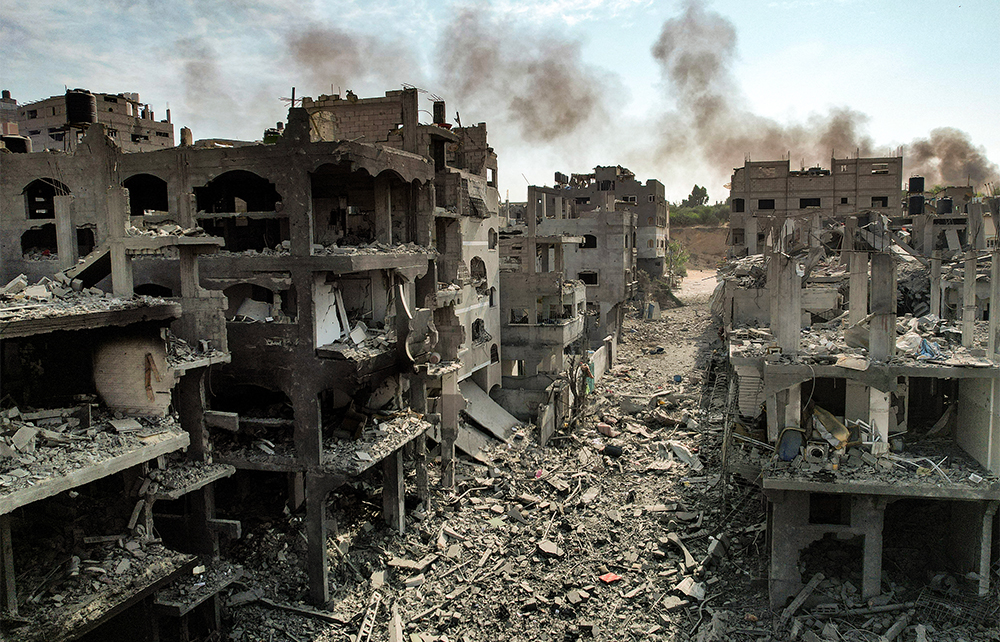Anthony Sattin has narrated this article for you to listen to.
I have been reviewing for decades and this is by far the most difficult book I have taken on: difficult to read because it relates to what Israel has done in Gaza over the last year, and difficult to write about because the subject is so divisive. But whether you think Palestinians deserve what is happening to them or that Israel is a rogue state, please read to the end.
First there is the title. Not Catastrophe, or Genocide, or Reckoning in Gaza, but Daybreak. This is a book that carries the promise of a new day, or a dawning – a book that looks forward, but does so also by looking back over 4,000 years of history. It has come out of a collaboration between the celebrated Jerusalem bookseller Mahmoud Muna and the British author Matthew Teller, whose excellent Nine Quarters of Jerusalem (2022) was a comprehensive and revelatory account of the troubled city. Together, they have approached Gaza residents, a few foreigners with significant experience of Gaza, and some other concerned people, and asked them to talk about the place. The response is a collection of brave, resilient, heartbreaking, defiant, scared stories.
We might start, as the book does, with a short piece from the 28-year-old writer Ahmed Mortaja – ‘Hello. Ahmed from Gaza here.’ On 13 October almost a year ago but less than a week into the current conflict, he worried that in the new normal, houses were bombed and women and children died before they even had a chance to scream.








Comments
Join the debate for just £1 a month
Be part of the conversation with other Spectator readers by getting your first three months for £3.
UNLOCK ACCESS Just £1 a monthAlready a subscriber? Log in